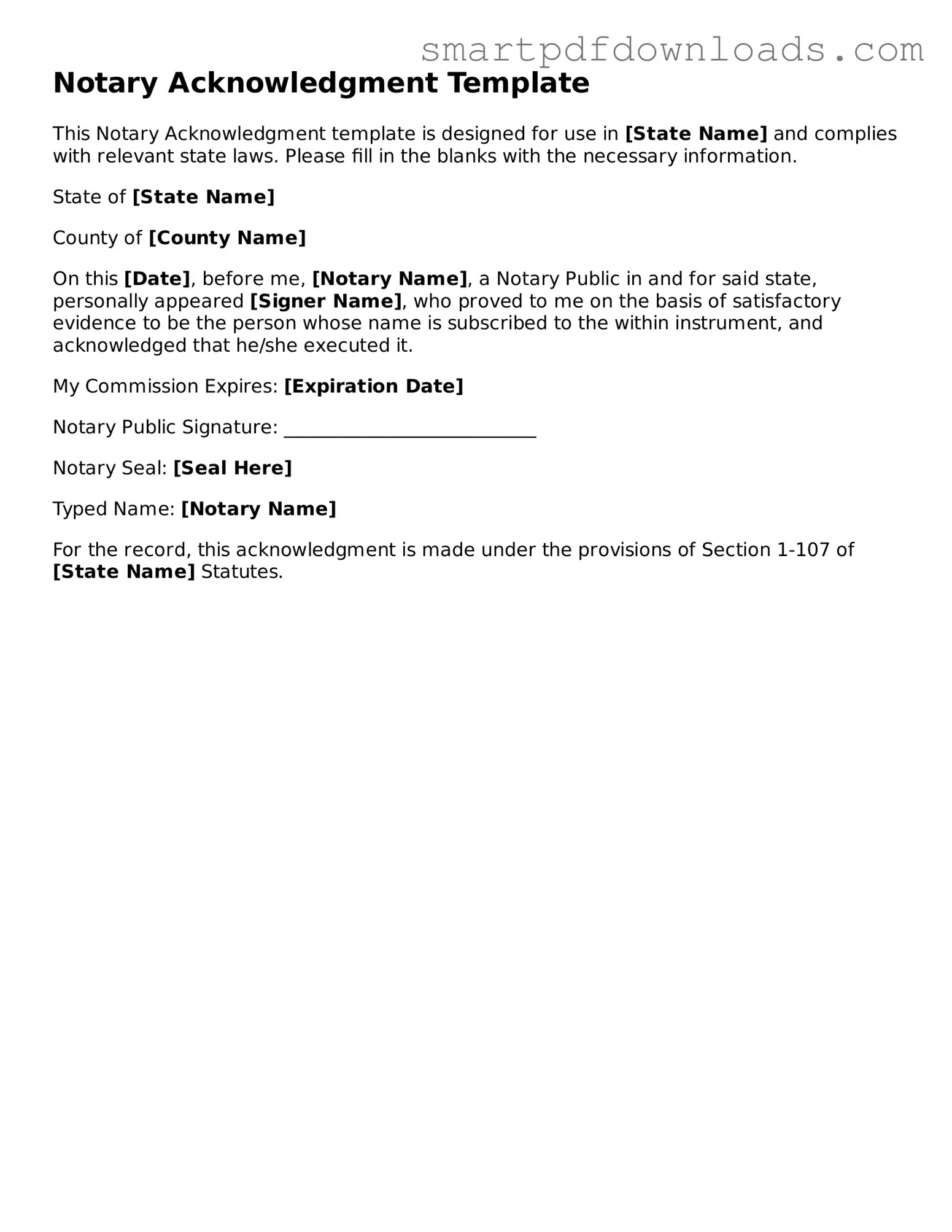Free Notary Acknowledgement Form
A Notary Acknowledgement form is a legal document used to verify that a signer has willingly and knowingly signed a document in the presence of a notary public. This form serves to protect against fraud and ensures that the identity of the signer is confirmed. Understanding its purpose and proper use is essential for anyone involved in legal transactions or document signing.
Edit Notary Acknowledgement Online

Free Notary Acknowledgement Form
Edit Notary Acknowledgement Online

Edit Notary Acknowledgement Online
or
⇓ PDF File
Finish the form and move on
Edit Notary Acknowledgement online fast, without printing.